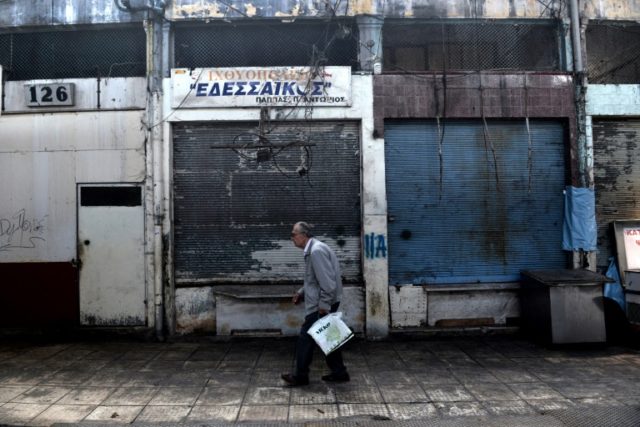Athens (AFP) – The Greek government on Friday said the country was “turning a page” after eurozone ministers declared its crisis over as they granted Athens debt relief under a bailout exit strategy.
The eurozone ministers’ agreement comes nearly a decade after Athens stunned the world with out-of-control spending, sparking three bailouts and a near collapse of the euro single currency.
“Greece is turning a page, its debt is now viable,” government spokesman Dimitris Tzanakopoulos said. “I think the Greek people can smile, they can breathe again.”
“This is a historic decision,” Tzanakopoulos told state TV ERT.
Following the eurozone ministers’ hard-fought agreement declared earlier Friday, Greece is slated to leave its third financial rescue since 2010 on August 20.
“The Greek crisis ends here tonight,” said EU Economic Affairs Commissioner Pierre Moscovici, after marathon talks in Luxembourg.
The deal was expected to be an easy one, but last-minute resistance by Germany — Greece‘s long bailout nemesis and biggest creditor — dragged the talks on for six hours.
The ministers agreed to extend maturities by 10 years on major parts of its total debt obligations, a mountain that has reached 180 percent of the economy — almost double the country’s annual economic output.
– No illusions –
They also agreed to disburse 15 billion euros ($17.5 billion) to ease Greece’s exit from its rescue programme.
This would leave Greece with a hefty 24 billion euro safety cushion, officials said.
“The Greek government is happy with the agreement,” Greek Finance Minister Euclid Tsakalotos said after the talks.
But “to make this worthwhile we have to make sure that the Greek people must quickly see concrete results… they need to feel the change in their own pockets,” he added.
Optimism is tempered by Greece’s remaining fiscal obligations, which will demand serious discipline, observers say.
“This is a very tight programme. A surplus of 3.5 percent to 2022 and 2.2 percent (on average) to 2060 is not easy at all,” Kostas Boukas, asset management director at Beta Securities, told Athens 9,84 radio.
“We’ll have to see if the pledges will be kept, especially as they depend on international developments as well,” he said.
Under pressure from its creditors Greece has already agreed to slash pensions again in 2019, and reduce the tax-free income threshold for millions of people in 2020.
Further cuts will be made to maintain the 3.5-percent surplus, if necessary.
“It would be a terrible mistake to cultivate illusions that the end of the bailout means a return to normality,” said pro-opposition daily Ta Nea.
“What follows is tough oversight which no other country has experienced in a post-bailout period,” the daily said.
The European Commission has already specified that Greece will remain under fiscal supervision until it repays 75 percent of its loans.
burs-jph/ser

COMMENTS
Please let us know if you're having issues with commenting.